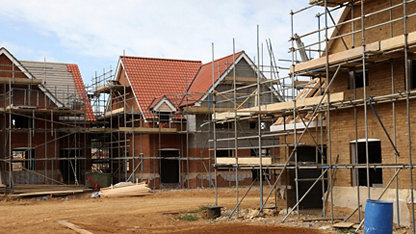Identifying the decision makers and their barriers
Across the three main housing tenures – owner occupied, private rented and social rented – there are distinct decision makers with specific barriers to investing in energy efficiency improvements. For example, homeowners are typically responsible for investment decisions in the owner-occupier sector, and yet their financial position varies from highly leveraged first-time buyers to outright owners with significant savings. Meanwhile, in the private and social-rented sectors the decision-making power often lies with the landlord.
While many barriers are common across the entire market – such as limited consumer awareness and education on energy efficiency, the hassle and complexity of retrofit projects, and a shortage of reliable and accessible data – there are specific challenges that impact different sectors, as outlined below:
- Owner occupiers can be deterred by lengthy and uncertain payback periods on energy efficiency investments, in addition to a limited selection of attractive finance options
- Private renters and landlords experience a split incentive (i.e. landlords have minimal motive to retrofit their properties, as energy savings often accrue to the tenants) and awareness of Minimum Energy Efficiency Standards can be limited among smaller landlords
- Social housing providers and registered social landlords, who typically undertake large-scale retrofit projects, can be impacted by the underdeveloped supply chain and access to affordable funding.
The breadth of unique and distinct barriers highlights an important consideration: to deploy investment into decarbonising buildings at the pace and scale required, the solutions must be granular, bespoke and local.
Overcoming the barriers with financial innovation
In the journey towards a mature market for financing net-zero and resilient-homes, the design and development of new financial mechanisms that unlock the investment barriers, appeal to consumers, deliver commercial returns to financial institutions, and can be scaled to form part of the long-term finance landscape is critical. To catalyse and scale up the degree of financial innovation, an enabling environment is required: industry-wide standards and principles, robust data infrastructure, and tools that support homeowners on their retrofit journey.
A collaborative environment, drawing on expertise along the entire value chain, will allow the necessary level of financial innovation; to this end, in 2019 the Green Finance Institute established the Coalition for the Energy Efficiency of Buildings to create these conditions and accelerate the market for financing the retrofit and construction of net-zero homes.
The Coalition has since, profiled target markets, identified their investment barriers and co-designed a portfolio of 21 financial ‘demonstrator’ solutions that meet the criteria above. These include several data and standards focused initiatives:
- Metered Energy Savings that deliver rich data on real-time energy savings over the lifetime of a retrofitted building
- Residential Retrofit Principles that offer an industry-recognised certification for financial solutions that support the retrofit of residential buildings to a high standard
- Energy Efficiency & Property Valuation research to help develop practical solutions that unlock investment and demand for net-zero homes
- Building Renovation Passports to provide a bespoke and long-term renovation plan to decision-makers across all housing tenures, creating a link with the supply chain and finance providers.
A full report on the first phase of the Coalition’s work was published this week, offering a valuable roadmap for those directly involved or interested in the net-zero building agenda.
Maintaining momentum, mainstreaming the market
The Green Finance Institute and its Coalition members are now embarking on the second phase of the journey – to develop, pilot, scale and mainstream the demonstrator projects. The commitment to deliver innovative solutions with a real-economy impact is testament to the vision of every Coalition member and the power of collaboration.
RICS is a proud member of the Green Finance Institute’s Coalition for the Energy Efficiency of Buildings.
This article is from a blog by Emma Harvey, Director at the Green Finance Institute












